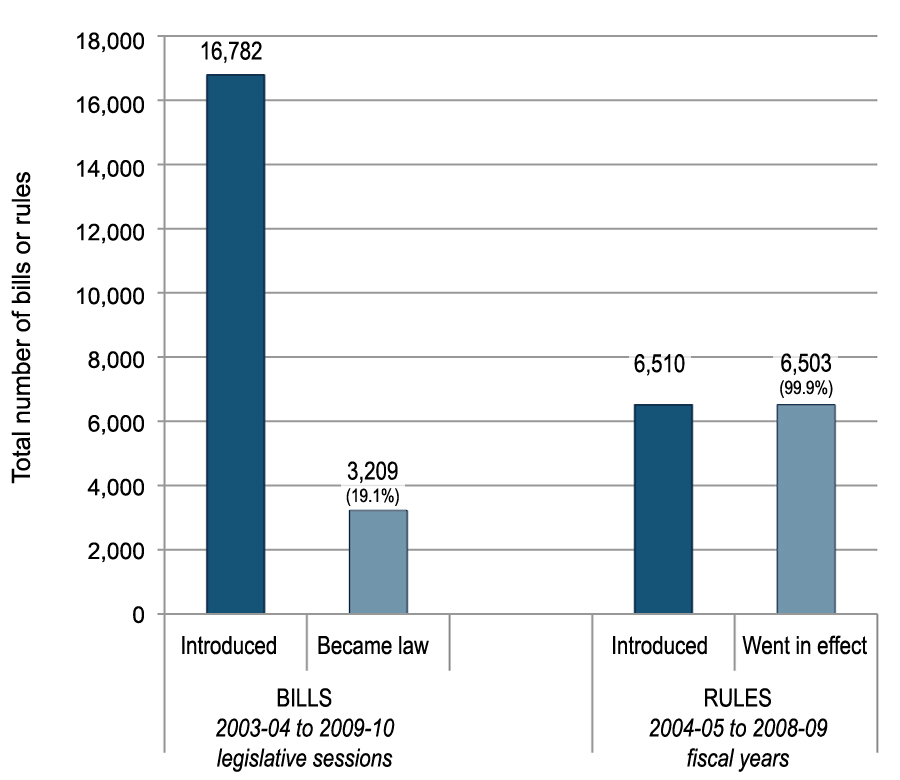And their answer, as explained by William Kovacs, is along the lines of why state agencies here can make rules carrying the force of law so much easier than the General Assembly makes laws.
Under the checks and balances built into the U.S. Constitution, it is supposed to take a great deal of effort to enact new laws. For a bill to become law, it has to pass the House of Representatives and the Senate, and the differences in the two bills must be reconciled by both chambers before being sent to the president for approval or veto. This is an enormously time-consuming process that requires knowledge of the subject matter; a willingness to persuade and be persuaded; and an ability to withstand criticism, falsehoods and attacks while collecting enough support to transform an idea into law.
By contrast, a regulatory agency can relatively easily issue regulations that are, in effect, the laws of the United States. Violations of agency laws have the same and many times greater consequences than violating the laws passed by Congress since the agency is fact-finder, prosecutor and sometimes even the judge. Agencies are essentially free to enact their laws with few restraints and little need for compromise. An agency merely needs to publish a proposed regulation (proposed law), let the public comment on its proposal and then impose the new regulation. It is just that simple — and it occurs around 4,000 times a year, year after year.
By way of comparison, here is the situation in North Carolina and why we need a state REINS Act:


